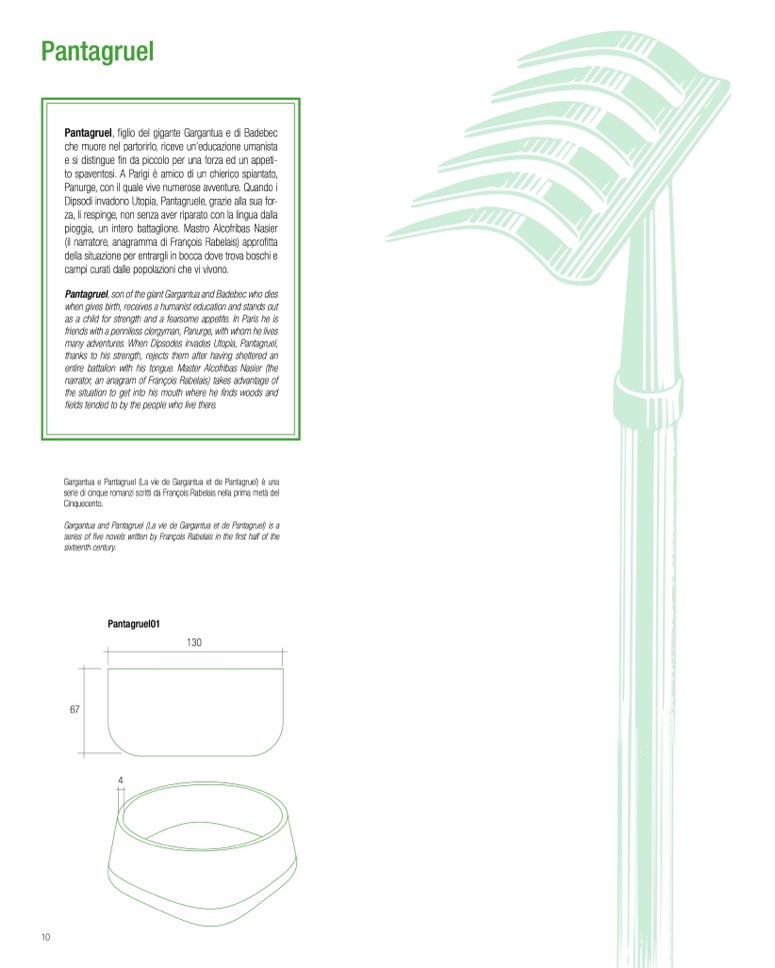
Pantagruel
Pantagruel, figlio del gigante Gargantua e di Badebec
che muore nel partorirlo, riceve un’educazione umanista
e si distingue fin da piccolo per una forza ed un appeti-
to spaventosi. A Parigi è amico di un chierico spiantato,
Panurge, con il quale vive numerose avventure. Quando i
Dipsodi invadono Utopia, Pantagruele, grazie alla sua for-
za, li respinge, non senza aver riparato con la lingua dalla
pioggia, un intero battaglione. Mastro Alcofribas Nasier
(il narratore, anagramma di François Rabelais) approfitta
della situazione per entrargli in bocca dove trova boschi e
campi curati dalle popolazioni che vi vivono.
Pantagruel, son of the giant Gargantua and Badebec who dies
when gives birth, receives a humanist education and stands out
as a child for strength and a fearsome appetite. In Paris he is
friends with a penniless clergyman, Panurge, with whom he lives
many adventures. When Dipsodes invades Utopia, Pantagruel,
thanks to his strength, rejects them after having sheltered an
entire battalion with his tongue. Master Alcofribas Nasier (the
narrator, an anagram of François Rabelais) takes advantage of
the situation to get into his mouth where he finds woods and
fields tended to by the people who live there.
Gargantua e Pantagruel (La vie de Gargantua et de Pantagruel)
è una
serie di cinque romanzi scritti da François Rabelais nella prima metà del
Cinquecento.
Gargantua and Pantagruel (La vie de Gargantua et de Pantagruel) is a
series of five novels written by François Rabelais in the first half of the
sixteenth century.
Pantagruel01
130
67
4
10

